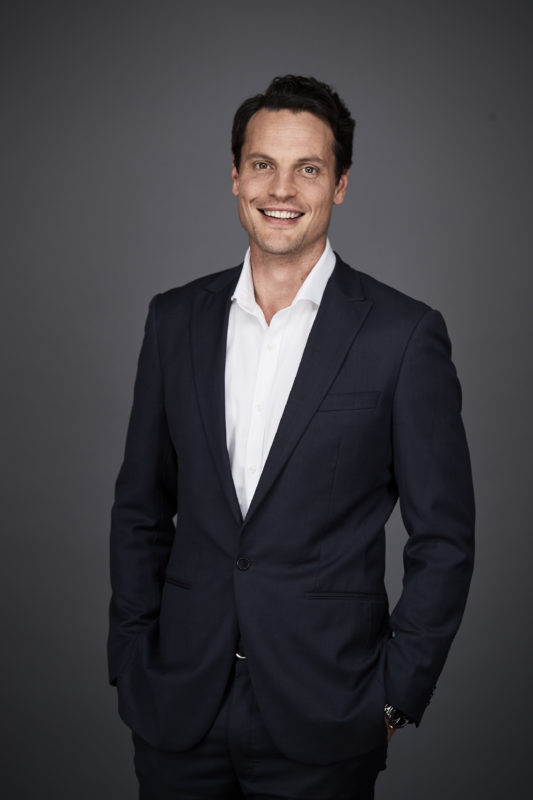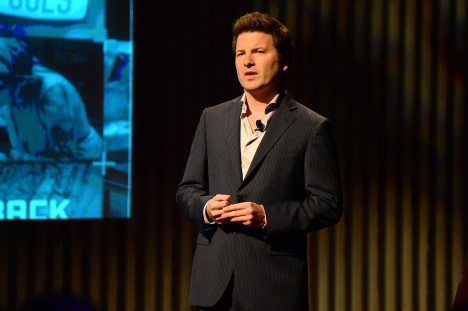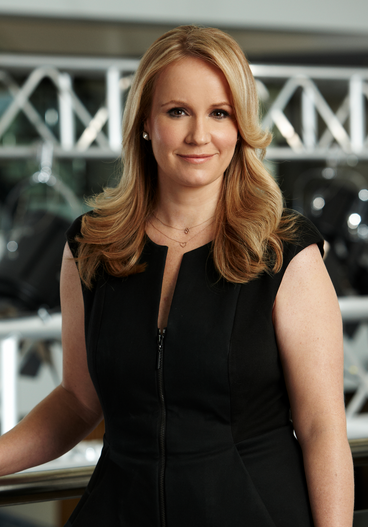Keeping up with the TV networks: Seven sheds no tears over Nine’s reality triumph
With the first official television ratings period of the year complete, Zoe Samios checks in with the network programming bosses on how they’ve performed so far and what’s in store for the post-Easter battle
It was always going to be an unusual start to the 2018 official ratings year.
Some of the elements were standard. Nine’s summer of cricket ended with Australia cruising to an Ashes win over England; Ten’s Big Bash rated strongly, as did Seven’s Australian Open; and as January turned to February, the three networks rolled out their first tranche of reality shows.
But this year, there was an added wrinkle. Seven was able to kick off the year with the Winter Olympics.
It had been a difficult 2017 for the networks with Seven’s programming slump, Ten going into administration and flat advertising revenues. This year has opened with strong audience for the medium as a whole and one of the tightest two-way television battles in some time between Seven and Nine.
As we enter the two-week Easter non-ratings period – the last respite for the networks until December – how have they performed so far?
Looking at the network metro shares for the six weeks of the official ratings year so far, both Seven and Nine are up year on year with shares of 32.5% and 29% of the total people demographic respectively. Network Ten has seen a 2.2 point slump to an average network share of 15.5%.
Seven also leads – narrowly – in the key 25-54 advertising demographic, with a share of 32.8%, ahead of last year’s 29.9%. Nine is just a fraction behind, with a share of 32.7%, up on its 31.1% in 2017.
Ten Network’s share for 25-54 has fallen to 19%, compared to 21.6% the year prior.
There have already been twists and turns since the official ratings period kicked off on February 11.
The fifth – and most controversial yet – season of Nine’s Married At First Sight finally outrated Seven’s My Kitchen Rules. Seven was able to boast its biggest official launch week in history thanks to its healthy Winter Olympics ratings. But it also shafted Ninja-lookalike Australian Spartan after woeful ratings. And over the last couple of weeks, Ten suffered some of its worst shares since the current OzTam system launched.
While Seven and Nine’s programming bosses both agreed to be interviewed for this feature, Ten declined.
The above infogram has been provided by Nine.
Despite MKR’s defeat by MAFS, Seven’s programming boss, Angus Ross, tells Mumbrella he remains pleased with its overall performance of an average 1.1m metro viewers, saving his disappointment for the flop of Australian Spartan.
The show, which displayed major similarities to Nine’s Ninja Warrior, debuted with 816,000 metro viewers. That number reduced to 524,000 viewers the following week.
“Spartan was disappointing when we launched that,” Ross tells Mumbrella.
“We still believe in the show. We think it’s a good show and we want to give it the best opportunity to be sampled. But I’m not going to shy away from the fact that the result was a disappointment for us.”
Ross says he’d like it to “do more” in order to justify the sizeable investment in the show, but he’s says he wouldn’t be in the job if every show was a winner.
Looking back, he says changing the “gears” against Married at First Sight didn’t work. A full analysis of the show will be completed once the final episodes have aired next week.
However on the topic of when the already-commissioned second season will air, Ross adds: “We’ll be definitely looking to run it within the ratings period.”
Meanwhile, Nine’s programming boss Hamish Turner is ecstatic with the most successful season of Married at First Sight yet. Taking into account seven-day catch-up viewing too, MAFS averaged 1.2m on broadcast television, finishing with its highest rating episode in its history.

Nine’s Married at First Sight delivered audiences across both digital and linear, but didn’t cannibalise the audience, says Turner
Turner says the success is to do with the “depth in storytelling” and “universal themes” but he’s careful to remind that “amidst the drama, you always have to come back to love”.
Regardless, he’s still in shock over the feedback and noise the show created across the media.
“Casting is an absolute imperative as part of the show but also ensuring people are there for the right reasons and we always talk about maintaining the integrity of love and that is definitely at the base of the show,” he adds.
This season also broke new digital records. According to 28-day video player measurement (VPM) numbers, Nine’s Married at First Sight averaged an additional 200,000 viewers – and two episodes more than 300,000. Last year, the season average was between 165,000 – 175,000.
However Turner doesn’t believe the latest digital results are “cannibalising” linear assets. “What we are seeing is that technology is allowing us to increase our footprint without being detrimental to our overnight numbers, in fact driving our audience back into it,” he says.
As well as the competition of MAFS, Turner attributes some of the flop of his rival’s Australian Spartan to Seven’s choice not to adhere to the US formula.
“Spartan is a good format but they moved away from what the US format looked like. They would’ve looked at Spartan as a family proposition and tried to take the ground on the Sunday night. It’s a very competitive business and we all try things and sometimes they don’t work.”
Despite this, Turner was quick to congratulate MKR for its “robust” numbers, arguing the competition is good for free to air as a medium.
Turner declined to make predictions about how MAFS will fare next season, saying: “If we can maintain the numbers we’ve achieved this year next year, we’ll all be very happy”.

Ross is confident MKR will make a ‘fair amount of noise’ when it resumes after the Commonwealth Games
To the annoyance of some viewers, Ross has also made the relatively brave call of waiting for the finals week of MKR until after the Easter non-ratings period and Seven’s forthcoming Commonwealth Games.
He says: “MKR is going to be making a fair amount of noise at the other side of the Commonwealth Games.
The above infogram has been provided by Nine.
“MKR still averaging 1.1 million for the series to date so it’s still a big show. We really think the episodes post Comm Games take things to another level with the way that the narrative within the show is going – it’s all leading towards a team being booted off the competition for the first time ever.
He’s also says the Winter Olympics – which came as a package deal with the 2016 Rio Olympics and 2020 Tokyo Olympics – did not take audiences away from Seven’s My Kitchen Rules. Instead, given the time difference with South Korea meant most action not starting til after 9pm, MKR provided an audience run-in.
“I don’t think the Winters hurt MKR at all.”
But he says he would’ve never have rested MKR for the Winter Olympics. That would give Married at First Sight a “totally free run”, Ross says.
“Plus MKR is one of our biggest shows. Knowing that MKR would be anchoring the 7:30pm to 9pm slot and then we are hitting Olympics from 9pm, we thought we’d end up with a pretty fat share during that period and we were right.”
However unlike the start of the year, Ross has planned a break for MKR during the Commonwealth Games.
Ross claims not be worried about losing momentum for the final phase of MKR, pointing to a planned promotional campaign which will build across the games.
“We think it’s pretty noisy,” he says.
“Obviously we feel the Commonwealth Games are going to be huge,” he adds. “We think it’s going to be a good platform for reminding viewers about what’s to come.”
For Nine, the next few weeks and months will see the launch of US comedy Young Sheldon, The Voice and Buying Blind. Promotional efforts have also commenced for drama Bite Club and the NRL has already kicked off for 2018.
But Turner is still focused on consistency across the network’s shows despite taking “measured risks where the schedule allows”.
“You’ve always got to continue to surprise audience. With formats that return there always has to be good elements,” he says.
“The other thing from an advertiser perspective is we promise consistency and there’s guarantees there as well.”
For Seven, Ross has a number of shows to return following the Commonwealth Games and MKR finals week. House Rules will be back as well as new shows Mentor with Mark Bouris, Interview with Andrew Denton, US show 911 and Australian mini series Olivia Newton John, starring Delta Goodrem. The AFL has already begun for the new year.
Ross says advertisers are still confident in what Seven have in store for the rest of the year, despite the new slate.
“I’ve done a number of presentations to various advertisers and they seem pleased with what we’re batting up for the back half. We know we need to improve our audience versus last year and that’s obviously the aim.”
What is happening at Channel Ten?
Looking at the 2018 results to date, the success of Nine and Seven’s programming slates appeared to squeeze Ten more so than in recent years. In four of the six official ratings weeks of 2018 so far, Ten has produced some of its lowest weekly shares in modern ratings history.
In the first offical ratings week Ten’s network share (including secondary channels Eleven and One) was 14.2% while its main channel share was just 9.8%. The week following the number grew slightly to 15.2% for the network and 10.5%. But following I’m A Celebrity Get Me Out of Here, Ten’s main channel share fell to 8.4% while the network obtained a weekly share of 13.2%.
Ten declined to make chief content officer Beverley McGarvey available for a phone interview, with the network’s corporate communications team offering to provide written answers to specific questions from McGarvey via email.
A copy of the email responses is below:
Looking back on this season of I’m A Celebrity, what do you believe you did well? Is there anything you’d do differently?
A: Like every series of every show, we do a big piece of post-research work to help us assess what we need to learn from the show and what we may have to do differently next time or what learnings we can apply to other shows.
Do you believe introducing celebrities such as Danny Green, Anthony Mundine and Bernard Tomic help generate wider conversations around the show? How important was the casting to this year’s success?
A: Casting is absolutely critical to all constructed reality shows. The added celebrity element in I’m A Celebrity…Get Me Out Of Here! certainly does create a lot of chat around the show’s launch. That is important at a time of year when so many shows are launching.
How do you believe you performed relative to the other reality shows in the time slot?
A: Season four of I’m A Celebrity…Get Me Out Of Here! resonated with our core target audience of people 25 to 54 and generated solid results across different screens.
How can you tell when a series has run its course?
A: There are many factors that indicate when a series has run its course. Also sometimes a show that has lots of life in it can just have a poor season, for whatever reason.
Bachelor In Paradise starts this weekend, what are your expectations?
A: Bachelor In Paradise is a great show and we really expect it to give us year-on-year time slot growth across the series.
Why do you think this will resonate with your key demographic?
A: It is a surprising twist on a known brand, it is warm and funny, there are lots of great characters, it has genuine heart and we get some wonderful resolutions.
What sort of format are we looking at for Bachelor in Paradise (only Sundays?) Why did you choose this format?
A: Bachelor In Paradise is a multi-night show, that is, it will run more than once a week.
How do you expect it to perform against House Rules and The Voice?
A: As mentioned earlier, we really expect it to give us year-on-year time slot growth across the series, The Voice and House Rules are great established brands but very different to Bachelor In Paradise, so viewers have some great water cooler Aussie content to choose from, which is the biggest strength of free-to-air television.
What will be your focus going into Q2?
A: Bachelor In Paradise, The Project and planning for the rest of year. I’m not sure how you define Q2, but still to come on TEN in upcoming months are shows such as the brand new season of the iconic American comedy Roseanne, a remarkable season 10 of MasterChef Australia, all-new Have You Been Paying Attention? and new seasons of Shark Tank and Todd Sampson’s Body Hack.



